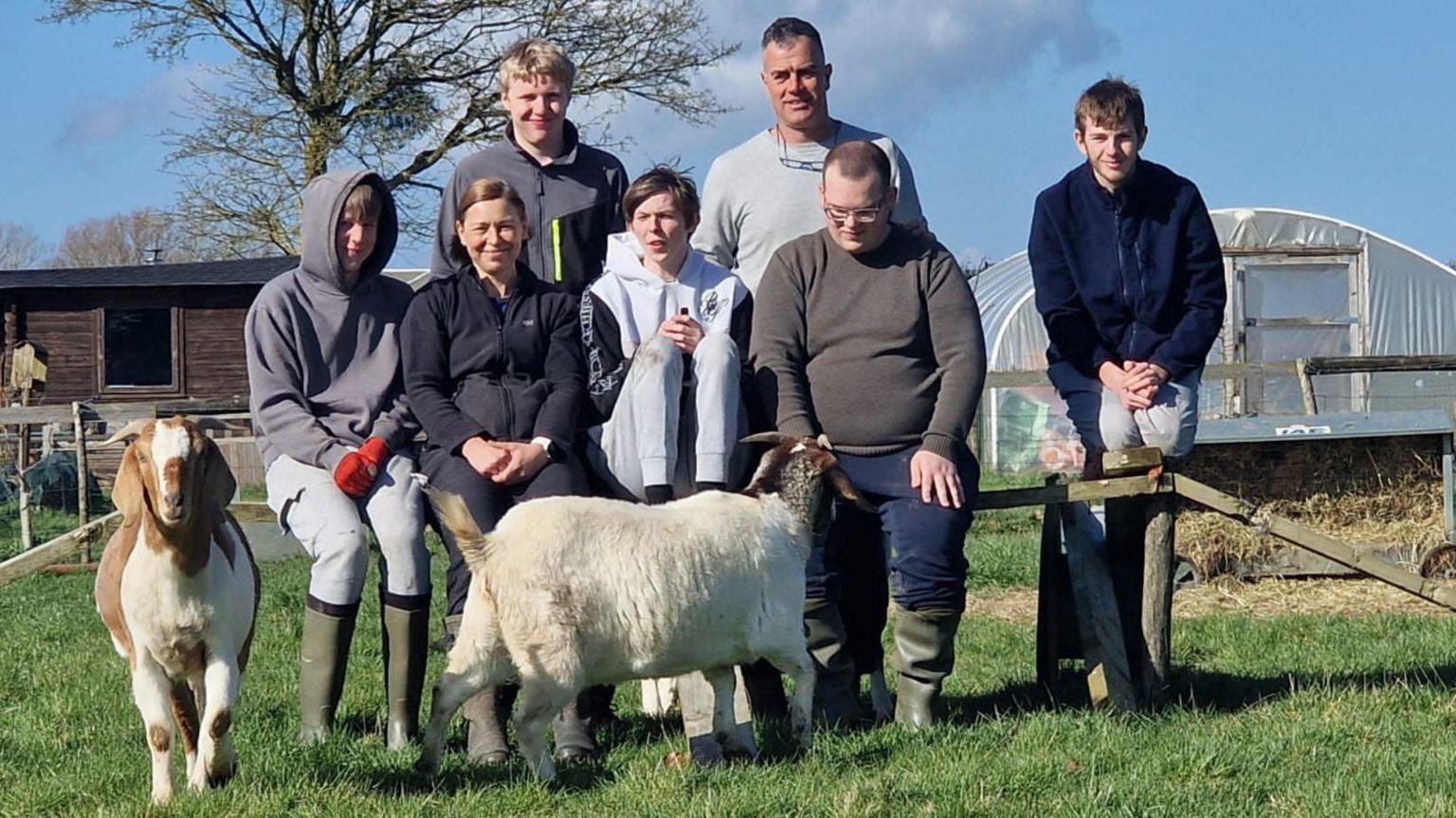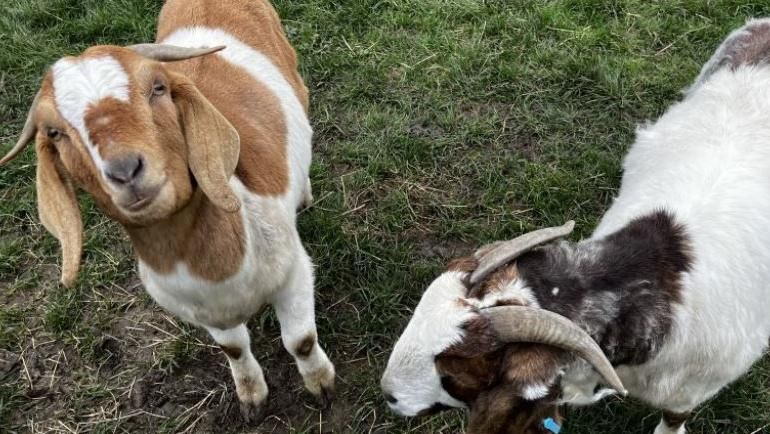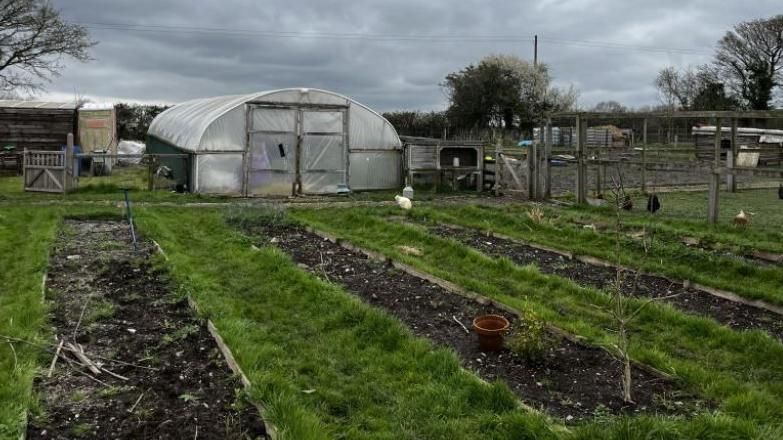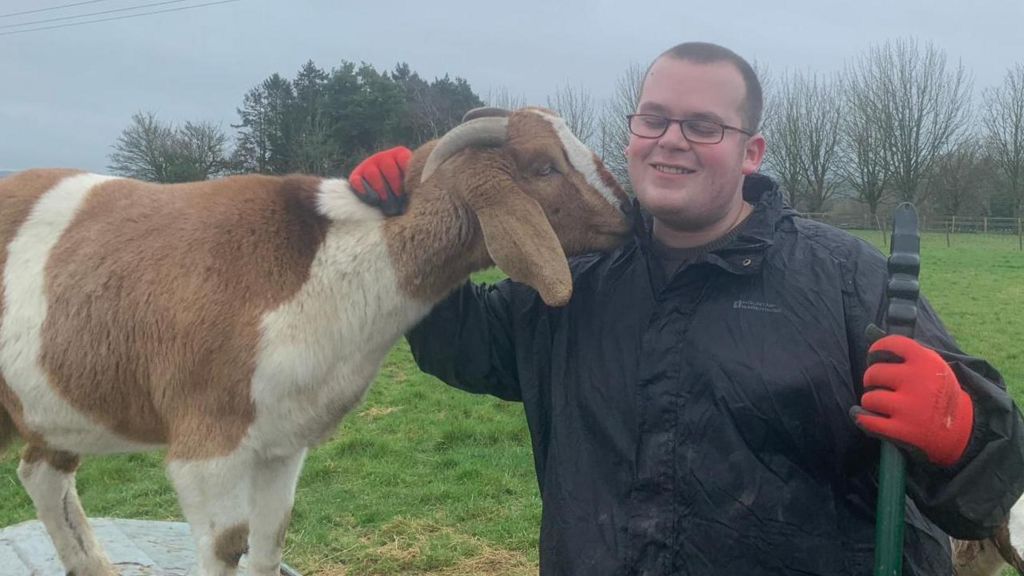
The working farm is based near Wotton-under-Edge in Gloucestershire
A couple are helping students who struggle in mainstream education get a qualification on a working farm.
Outdoor education provider GroundEd provides training in land studies and horticulture to post-16 students who have special educational needs such as autism and anxiety.
Tas Stamatopoulos, 50, started the project with his wife Jacqueline Stamatopoulos at a site near Wotton-under-Edge in Gloucestershire.
Sam, one of their students, said: “I feel happier, less stressed and more confident than I was in school.”
Mr Stamatopoulos was a farm worker in Dorset and Devon before becoming a secondary school science teacher in 2004.
After working with students with emotional and behavioural difficulties who had been excluded from mainstream schools, he decided to start GroundEd.

Students have many duties on the working farm, including caring for livestock
Most of the project's students work towards a Level 1 BTEC in Land Studies and if they complete this they can stay on and then do the diploma.
There are normally only six or seven students at the farm at any one time which helps with the level of support they get.
Mr Stamatopoulos said: “Tranquillity is key – everything is relaxed and they know if they want to speak to a member of staff they can."
“We run it as a working farm. We have a daily briefing with the jobs that we need.
"We might need to move the sheep, repair a fence, muck out all the chickens and collect the eggs or plant saplings.
“Most of the criteria for their course is met by doing those jobs.
"As they work it’s filmed and so they don’t have the fear of a written or spoken assessment,” he added.

GroundEd provides training in land studies and horticulture
Harry is 17 and in his first year at GroundEd.
“I struggled at school being inside all day and hated the stress of exams and written work," he said.
“Now I’m happier because I have practical tasks to complete and I’ve been given responsibility and the freedom to work on my own and with others,” he added.
Many students have gone on to have apprenticeships and jobs in local farms or horticulture businesses.
And older students said they felt a sense of belonging with Ground Ed they could not find elsewhere.
Mr Stamatopoulos said: “Most of the students come from special schools who then have to go onto mainstream colleges post-16 with a lot of other people and a lot of academic work.
“Most of them would struggle to go on their first day with the crowds of people.
"I think they would stop attending and then could easily disappear in the system.”

Toby said he wanted to be outdoors and enjoyed looking after animals
Toby is 21 and has high-functioning autism.
He came to GroundEd after being taken out of another alternative education provider that was not appropriate for his needs.
“The other college they wanted to send me to wasn’t my thing; it wasn’t what I wanted to do,” he said.
“I wanted to be outdoors. I like looking after the animals,” he added.
When asked about how he felt about his project, Mr Stamatopoulos said it was "great".
"We can see the change in kids very quickly when they come here. We can see the confidence grow.”
“We had two lads turn up last week on scooters and it was a lad who had studied here seven years ago.
"They rode up from Bristol and he wanted to show his mate the only place he enjoyed from his education.
“I think we make a lot more impact than we think.
"The best thing to offer them is that education doesn’t have to be a problem. It can be accommodating as long as you’re in the right place.”
From BBC
